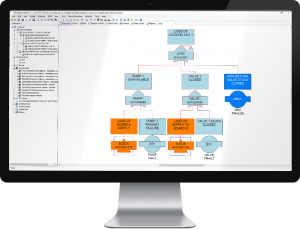Markov, named after Russian mathematician Andrey Markov, refers to a mathematical model that analyzes sequences of events based on the assumption that the probability of the next event depends only on the current state. This concept finds extensive applications across various fields due to its predictive capabilities and versatility.
Markov models are widely employed to understand and predict complex systems with dynamic states, making them invaluable in fields like finance, biology, and engineering. By modeling transitions between different states, Markov processes can reveal insights into system behavior over time.
In the realm of reliability engineering, Isograph's Fault Tree+ software tool leverages Markov models to assess and enhance system reliability. Users can construct fault trees, representing potential system failures, and integrate Markov analysis to simulate the dynamic evolution of these faults. This integration allows for a comprehensive evaluation of system reliability, aiding in proactive maintenance and risk mitigation.
Organizations benefit from Isograph's Fault Tree+ software by gaining a deeper understanding of their systems, identifying vulnerabilities, and making informed decisions to enhance overall reliability. The utilization of Markov in Fault Tree+ underscores the tool's effectiveness in providing robust solutions for industries reliant on dependable systems.
Get a FREE demo version of Fault Tree+ (Markov - found in Isograph's Reliability Workbench Suite) at isograph.com then click on FREE Trial
